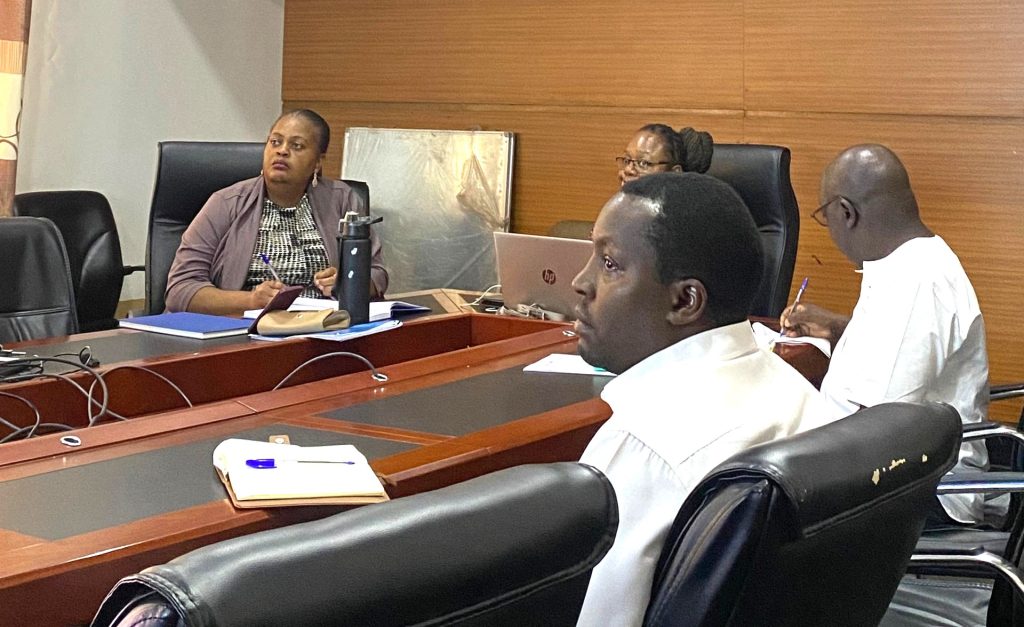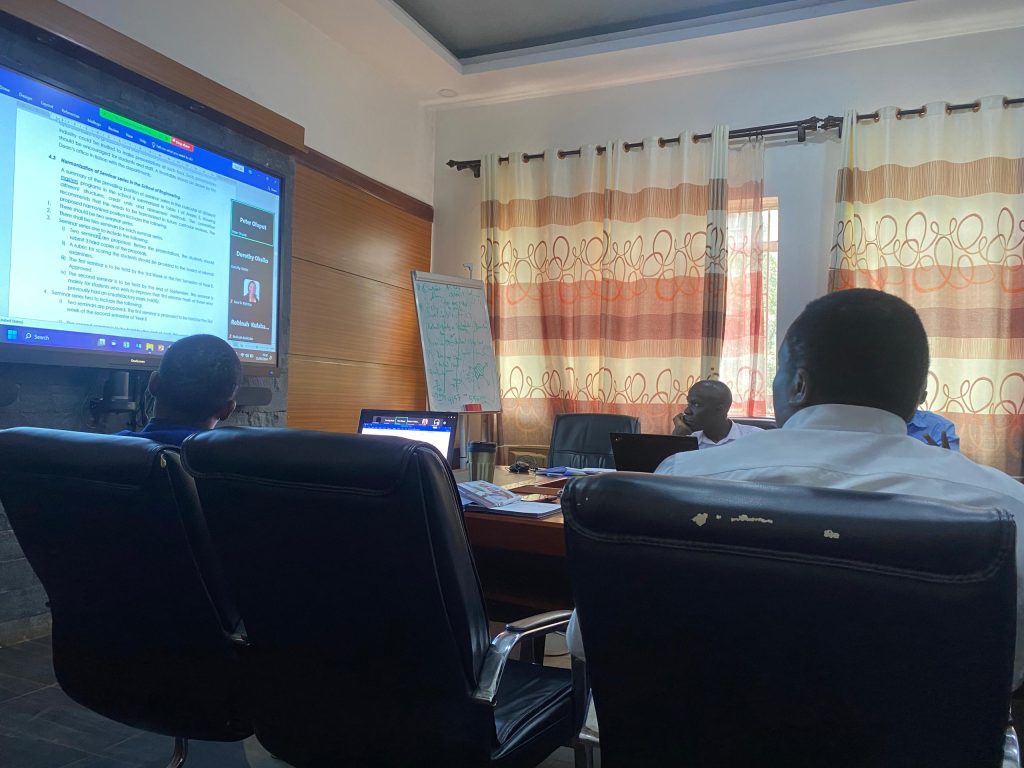On Wednesday 25th September 2024, the School of Engineering, College of Engineering, Design, Art and Technology CEDAT) convened an Academic Board board meeting during which key academic and administrative issues were addressed for the smooth running of the school. The School aims to improve completion rates and provide a more supportive academic environment for its students.
The meeting that was chaired by Assoc. Prof. Dorothy Okello the Dean, School of Engineering, was aimed at bringing the members of staff in the school up to date with the developments in the unit and the engineering sector as a whole. The discussions focus on the updated guidelines for Graduate Training, the organization of research groups, and the Institution’s contribution to the Engineering Professionals Bill 2024.
In her address, the Dean acknowledged the attendance of different heads of department despite the busy academic season, with several research and other activities ongoing.
During the meeting, Graduate training guidelines were discussed, cognisant of the fact that the updated version of the guidelines was expected to bring on board some amendments. Some of the suggestions included taking on alternative study plans, teaching research methodology earlier, and redistributing supervision responsibilities to prevent over burdening some staff. With the upcoming policy revisions, the board recognized the need for continuous dialogue and planning to support post graduate students for them to complete their study programs on time.

The School of Engineering is taking proactive steps to improve graduate completion rates, harmonize processes, and support research groups. To boost completion rates, the school is localizing the graduate handbook and reviewing curriculum harmonization across departments. The established research groups will also serve as models for developing templates to aid PhD students in choosing suitable groups.
The committee identified challenges in graduate programs, including lack of student commitment, delayed guidance, and bureaucratic research administration. Some of the proposed solutions included developing a calendar of events to track student progress, introducing an alternative plan (Plan B) for faster completion, closer engagement between students and faculty, harmonized admission processes as well as online progress tracking and regular training for research supervisors.
In addition, the Board discussed the organization of research groups with a view of streamlining their composition and functioning. It was agreed that the research groups were to adhere to the guiding principles, including university policies and national research clearance processes. Dr. Francis Mujjuni highlighted that the success of a research group hinges on collaboration, effective leadership, and structured policies that guide its functioning. These initiatives demonstrate the school’s commitment to streamlining graduate training and enhancing the research experience.

